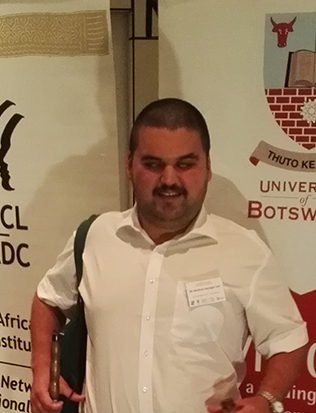
Boldizsár Szentgáli-Tóth
RESEARCHER, Centre for Social Sciences, Institute for Legal Studies
Budapest, Hungary
Scholarship: Online Practical Challenges and Solutions to Ensuring the Respect and Protection of Human Rights in the Digital Age (421D125)
29 March – 31 March 2021
“Despite the online format, the training provided a valuable opportunity to establish professional relationships with colleagues from other EU member states.” 31/03/2021 |  |
- Q & A with Boldizsár Szentgáli-Tóth
What is your legal background, your current occupation and country of work?
I am a researcher at the Centre for Social Sciences, Institute for Legal Studies in Budapest, Hungary. Having obtained my PhD with a dissertation on the subject of laws adopted with qualified majority voting, I then began to do some more specialised work in the field of artificial intelligence, concerning in particular the legal status and potential personhood of AI entities, and their involvement in the work of the judiciary.
How you use European law in your work?
I have participated in other international conferences, where I have spoken on these issues (Preston, Edinburgh, Budapest, and online conferences in Bratislava, Debrecen, Reykjavik and Austin). I have also been invited to talk on this topic at the 2021 annual online Conference of Europeanists, and also at the annual online Conference of the International Society of Public Law respectively. When speaking at and preparing for these events, I have analysed which requirements should be set for artificial intelligence entities to be awarded legal personhood, and I have outlined the necessity of a five-step classification of these entities, using the example of self-driving cars. Rights and duties of robots would depend on their place in this five-step classification.
Apart from this, I dealt with the potential political participation of the most developed artificial intelligences, and enumerated those barriers which should be removed before the establishing of their right to vote. Moreover, I have also attempted to adapt the existing setting of citizenship law to the special needs and characteristics of artificial intelligences. In these studies, I have considered the European legal instruments, especially the resolution of the European Parliament on the civil law rules of robotics, as important points of reference.
What was your motivation to apply for a scholarship?
I realised that in spite of the fact that I am able to elaborate certain recommended legal standards for the treatment of AI entities, my technological background was still to be improved and my knowledge of the relevant European law had to be deepened in order for me to be able to analyse these issues properly during the preparation of my legal assessments. My personal purposes with this training, therefore, was to gain a more detailed understanding of the technological construction of robots, insofar as this is relevant from a legal perspective, and to be able to include more discussion of European approaches to AI in my forthcoming publications and recommendations.
I also welcomed the chance to participate in a cohesive and inspiring community discussion, to learn from the most respected experts of the field, and to discuss the most significant issues with motivated and broad-minded experts with similar interests. Despite the online format, the training provided a valuable opportunity to establish professional relationships with colleagues from other EU member states.
How you benefited from the scholarship?
As part of the scientific endeavours to reflect on the implications of modern technologies through various means, the National Laboratory of Artificial Intelligence has been established, and my workplace, the Research Centre for Social Sciences, Institute for Legal Studies (Hungarian Academy Centre of Excellence) has also joined this initiative.
The main aims of this project are to provide a deeper understanding of paramount legal issues in the field of AI and to propose concrete solutions for the proper adaptation of the legal system. I have been selected to take part in this project, and it is highly recommended for the attending scholars to study the relevant instruments and attitudes of the European legal framework, since the Hungarian regulations we develop should comply consistently with the European approach. This grant and my participation at the training event really widened my perspective and gave me insight into the European aspects of artificial intelligence law; therefore, this has been a great help in preparing me for my future work on the National Laboratory project.
